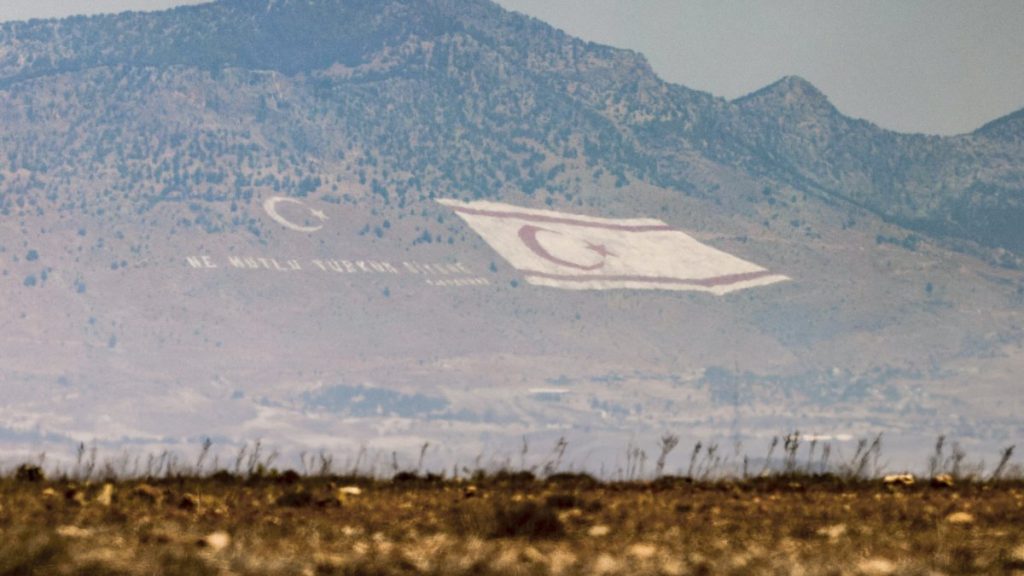As is well known, since 1974 – and especially following the accession of southern Cyprus to the European Union – the Turkish Republic of Northern Cyprus (TRNC) has found itself locked in a frozen political status, with little change to its international standing.
In recent weeks, TRNC President Ersin Tatar held talks in Geneva, where he managed to secure a framework understanding aimed at managing particular dialogue processes with the Greek Cypriot administration, at least until a clear two-state solution is established on a global scale.
Together with his Greek Cypriot counterpart, Nikos Christodoulides, Tatar agreed to implement a joint action plan that covers a wide range of issues – from energy coordination and the regulation of border crossings to the maintenance of cemeteries, the clearance of minefields and perhaps most notably, the creation of youth committees to foster dialogue between communities.
This initiative has been widely interpreted as a signal that some form of common ground is beginning to emerge on the island. The long-standing political narrative that painted Tatar as uncompromising has lost traction in the face of these latest developments. In essence, the Geneva talks suggest that the conditions for a potential reconciliation, or at the very least pragmatic cooperation, between the northern and southern sides of the island are slowly taking shape.
However, it would be premature to interpret this as a resolution to the island’s major political disputes. For now, it is more fitting to view this agreement as a humanitarian and practical platform for managing commerce, energy flows and civilian transit between the two sides.
Tourism destination
Turkish Cyprus, an island nation, is also one of the regions where tourism was first discussed and developed globally. The Maraş (Varosha) region, which is currently partially open for visitors, was once among the world’s top tourist destinations before the war on the island.
With its warm Mediterranean climate and deep historical roots – spanning the Byzantine and Ottoman eras – the island of Cyprus is a dazzling blend of cultural heritage and natural beauty.
Last weekend, the Northern Cyprus Tourism and Travel Agencies Association (KITSAB) and the Turkish Travel Agencies Association (TÜRSAB) organized a joint event.
Historically, the island has been associated mainly with leisure and entertainment tourism. However, through this joint initiative, both organizations laid out a vision for a broader tourism offering – positioning the TRNC not merely as an entertainment hub but as an attractive destination for families, nature lovers and cultural explorers, of course, in addition to its excellent beaches and the beautiful Mediterranean Sea.
The event was attended by a distinguished delegation, including Tatar, the prime minister of the TRNC, the Turkish Ambassador to Nicosia (Lefkoşa), the Turkish minister of Culture and Tourism and the minister of Tourism of the TRNC.
One of the most striking points made by Tatar during his address was this: “Of course, we will always remain engaged with the political and diplomatic challenges of Cyprus, yet the continuation of air traffic – even if routed through Türkiye – not only sustains our connectivity with the world but also strengthens our diplomatic standing through tourism.”
Tatar emphasized that when citizens and officials of a foreign country visit Turkish Cyprus as tourists, it paves the way for smoother diplomatic relations between that country and the TRNC.
‘Ayşe goes on vacation’
The discussion also highlighted the number of tourists Türkiye sends abroad annually and how many choose Turkish Cyprus as their destination.
Of course, competition in tourism is as fierce as it is in trade. Comparisons were drawn between the tourism shares of the northern and southern parts of the island. Yet, fundamentally, the entire island – north and south – attracts far fewer tourists than it deserves.
A compelling concept emerged from the meeting: a campaign titled “Travel to Our Own Room” or “Travel to Our Own Home” to encourage Turkish travelers to visit Turkish Cyprus.
TÜRSAB’s president concluded his remarks with a phrase that resonated deeply: “Ayşe will go on vacation.”
A phrase steeped in historical significance for the Turkish Cypriot community. Back in 1974, when diplomatic efforts in London failed to resolve the Cyprus crisis, Türkiye’s then-Foreign Minister Turan Güneş sent a coded message – disguised as a message to his daughter – to signal the launch of the Peace Operation: “Let Ayşe go on vacation.”
Global geopolitical landscape
On the geopolitical front, the island of Cyprus remains a strategic crossroads. Just days ago, commentator Aslı Baykal made a perceptive observation: “As Türkiye draws closer to Syria, Israel simultaneously moves closer to southern Cyprus.”
While European states today find themselves occupied by a few major international disputes beyond the ongoing Russian-Ukrainian war, the island continues to be manipulated as a geopolitical lever by those wishing to send messages to, or challenge, Türkiye.
The island of Cyprus remains a pivotal center of Eastern Mediterranean geopolitics, just as it has been throughout history. It is a critical junction for Western interests and a focal point in Türkiye-Greece and Türkiye-Israel relations.
For Türkiye, the island is indispensable in maintaining its presence and geopolitical leverage in the Eastern Mediterranean.
Two-state solution?
In the long run, it appears increasingly likely that the Cyprus issue will evolve into a two-state solution: a Greek Cypriot-administered south and a Turkish Cypriot-administered north.
The Greek Cypriot side and European powers show no willingness to envision the island beyond their own control. The modern global realities no longer allow one nation to subjugate another. History has shown, time and again, that surrender leads to tragedy, and the Turkish Cypriots have not forgotten the bitter lessons of the past.
We hope that Turkish Cyprus will flourish in tourism and economic development. With Türkiye’s tourism support, the potential of Turkish travelers, and sustained diplomatic backing, the TRNC – a tourism and education hub – can enter a stronger, more secure future.


